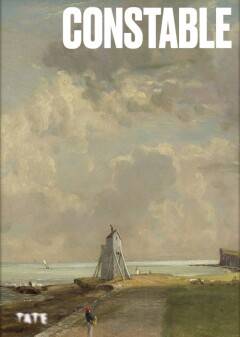
- Afhalen na 1 uur in een winkel met voorraad
- Gratis thuislevering in België vanaf € 30
- Ruim aanbod met 7 miljoen producten
- Afhalen na 1 uur in een winkel met voorraad
- Gratis thuislevering in België vanaf € 30
- Ruim aanbod met 7 miljoen producten
Zoeken
Omschrijving
A fascinating introduction to the life and work of John Constable, highlighting key aspects of his innovative practice and the ways in which he brought a new vivacity to the observation of nature in 19th-century art John Constable (1776-1837) is one of the greatest landscape painters of all time. Inspired by nature and the ever-changing British weather, he dedicated his career to capturing the beauty of the natural world, often painting in the open air and, rather radically, making expressive sketches in oil on the spot. His idyllic, nostalgic depictions of 19th-century rural life are iconic: attentive to detail, spontaneous in gesture, and bold in their use of color, they are imbued with a sense of drama and narrative, conveying feelings of happiness and sorrow, love and friendship. But they also possess a clarity of expression borne of familiarity: preferring to paint the places he knew and loved, it is Constable's landscapes which demonstrate an emotional connection, a true sense of place, that are among his greatest works. Charting Constable's remarkable trajectory from his childhood and adolescence in rural Suffolk to his death in London at the age of 60, this book is the perfect introduction to the life and work of the acclaimed artist. Bringing together a selection of paintings, drawings, sketchbooks, and prints from across his career, it highlights key aspects of the artist's innovative practice and the influences that shaped his artistic vision, revealing a masterful use of light and color, and his immense contribution to the landscape tradition.
Specificaties
Betrokkenen
- Auteur(s):
- Uitgeverij:
Inhoud
- Aantal bladzijden:
- 96
- Taal:
- Engels
- Reeks:
Eigenschappen
- Productcode (EAN):
- 9781849769006
- Verschijningsdatum:
- 18/03/2025
- Uitvoering:
- Paperback
- Formaat:
- Trade paperback (VS)
- Afmetingen:
- 137 mm x 196 mm
- Gewicht:
- 204 g

Alleen bij Standaard Boekhandel
+ 33 punten op je klantenkaart van Standaard Boekhandel
Beoordelingen
We publiceren alleen reviews die voldoen aan de voorwaarden voor reviews. Bekijk onze voorwaarden voor reviews.











